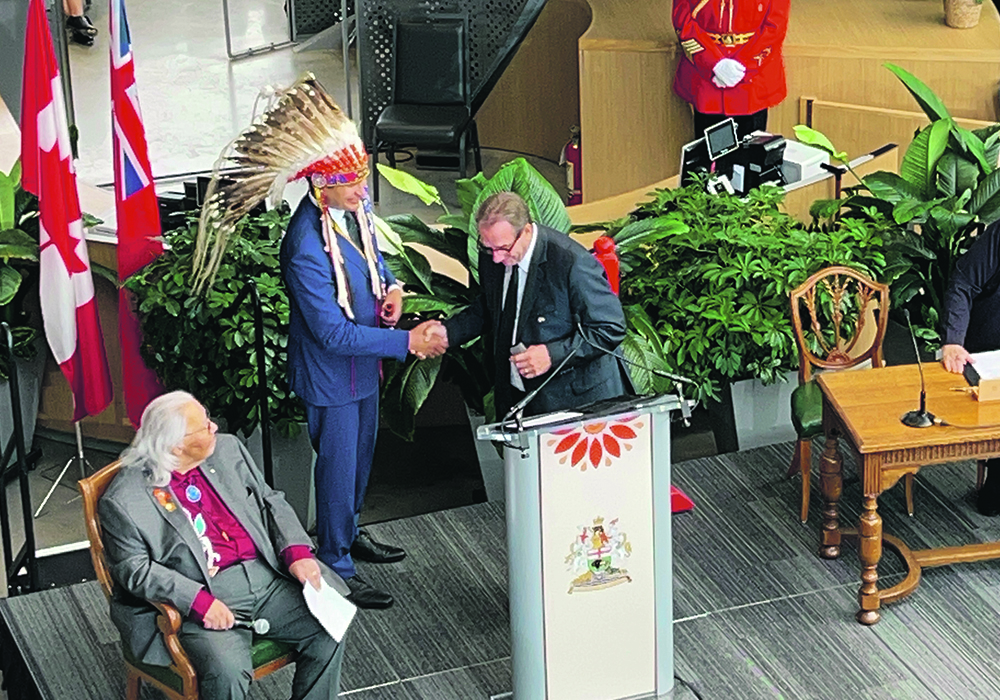The following passage shouldn’t be surprising:
“Agriculture is the backbone of the provincial economy. As the minister of agriculture, you are the steward of this essential sector. Your goal will be to support the sector so that Manitoba can be a leader in agricultural innovation, research and job creation. A strong agricultural sector means a strong Manitoba.”
Those are the marching orders to new Manitoba ag minister Ron Kostyshyn from new premier Wab Kinew.
They shouldn’t be surprising, but they are definitely relieving.
Read Also

Huge Black Sea flax crop to provide stiff competition
Russia and Kazakhstan harvested huge flax crops and will be providing stiff competition in China and the EU.
Whew. The view of the premier is one that almost none of us who care about farmers and farming would disagree with. That’s how we see agriculture: a core part of the economy that needs to be encouraged to do even more to help lift everybody’s boat.
The specific tasks Kostyshyn is told to undertake are also, to most of us, uncontroversial, including fixing the situation with crown land leases for cattle folk and fixing safety net programs.
Having farming recognized as an economic driver of our society isn’t something we should take for granted. It should be celebrated. If the Kinew government follows this path, good things can happen for farmers, even though few farmers voted NDP.
It’s in the government’s interest to have agriculture thrive and grow and throw off thousands of jobs and billions of dollars in spin-off benefits. But governments can choose to ignore that, as some of us have learned at various times in modern prairie and Canadian history.
It should be so obvious to every politician and political party that agriculture is such a core element of the economy that nobody ever messes with its ability to sustainably thrive and grow. Sometimes, unfortunately, governments get distracted by various political considerations and indulge in values-signalling endeavours that either sideswipe or outright target farmers.
A report recently issued by a task force of highly qualified agricultural economists and ag analysts sees Canadian farming and agriculture as a sector that cannot only boost Canada’s economy, but also serve a vital role for the world’s growing and hungry population (see page 13). Canada is one of the few places on this planet that can sustainably boost food production while reducing greenhouse gas emissions and protect vulnerable soils and ecosystems.
“Canadian producers we spoke to over the past year are positioned for growth. The sector has punched above its weight, serving as a rich source of jobs, trade flows, and economic gains, even during periods of crises,” the report said.
This also should be obvious.
“Canadian governments need to step up their commitments and create a robust policy environment that recognizes the sector’s economic potential, its global role as a reliable food exporter and as a climate-smart leader. This is Canada’s moment to propel forward its agriculture sector.”
However, so much federal government and society attention is being spent on climate change issues that supporting and encouraging farmers and agriculture often seem to be forgotten.
Many federal government agriculture programs are getting tortured and twisted into “climate change initiatives” that the vital interests of farmers, the agriculture industry and Canada itself are forgotten.
Instead of focusing on producing better crop varieties to help farmers produce more with less, federal programs seem to now be taking an emissions-first approach, even though producing-more-with-less should be seen as inherently sustainable.
The federal Liberal government is not hostile to farmers and rural Canada, no matter what the guys with “Eff Trudeau” signs on their pickups and those trolls with angry rants on social media think.
But it is in danger of losing sight of the vital importance agriculture possesses as a foundational industry that powers so much of the national economy. Agriculture has wide-reaching implications, including for the food industry, for food security and for a positive trade balance, and it is the main factor that creates jobs and keeps people living in rural Canada.
Farmers lost a lot when Jim Carr, the Winnipeg Liberal MP and both natural resources and international trade minister, died. He was a champion of western Canadian agriculture. But he’s far from the only ag champion in the federal government. There is a host of pro-farmer and pro-economy MPs and ministers who farmers and their friends can work with.
The federal government isn’t in danger of becoming anti-farmer, but it is possible that, with all its other concerns, it might just forget about farmers. Its values-signalling efforts on climate change aren’t meant to be antagonistic to farmers, but farmers might need to clue in the politicians on how some of this stuff comes across.
The Kinew government’s acknowledgement of the role of agriculture in our economy and society is a big win for farmers. That’s something to be embraced and appreciated. Just keep in mind that you’ll need to politely and respectfully remind our leaders and other politicians about the importance of agriculture because it’s easy to become distracted when you’re running things.


















